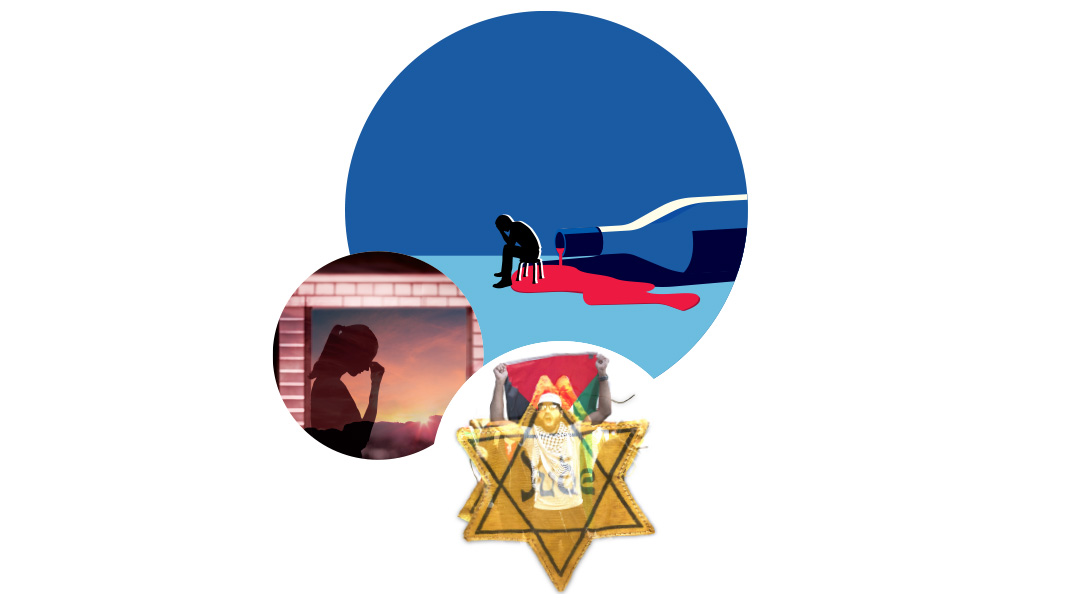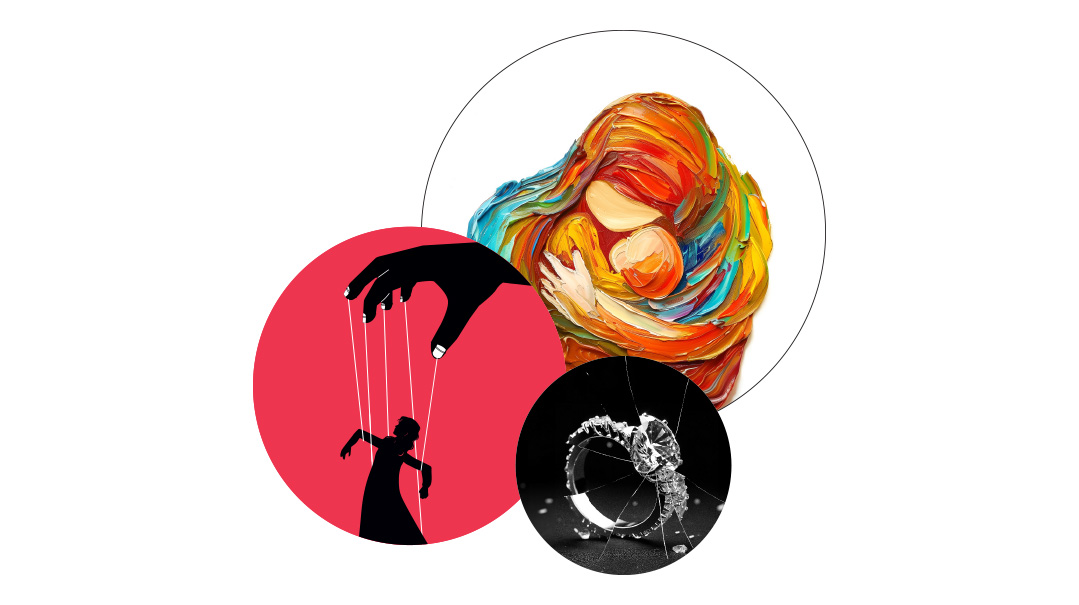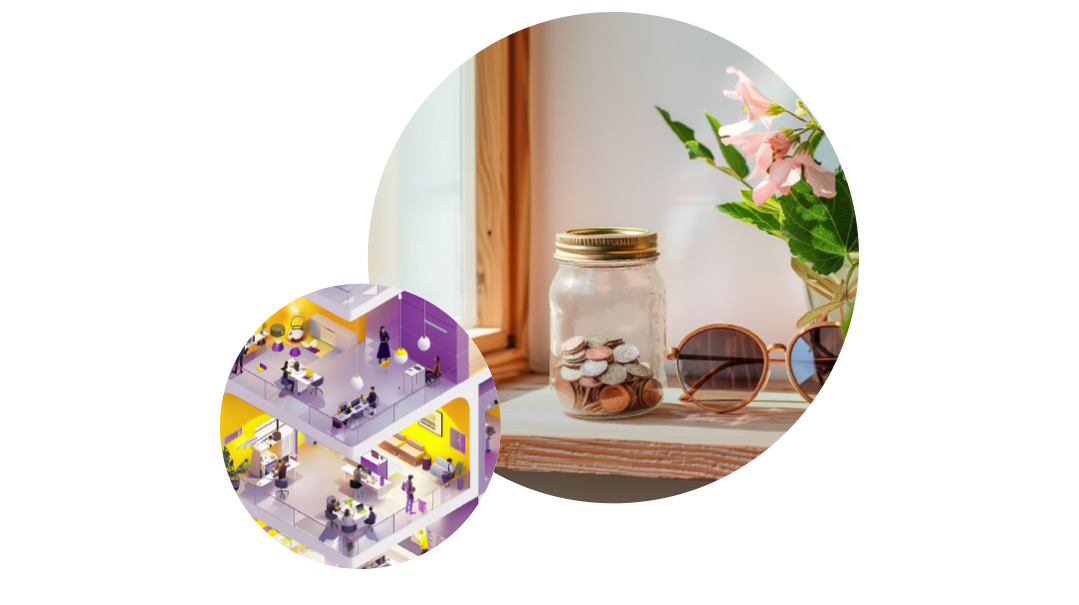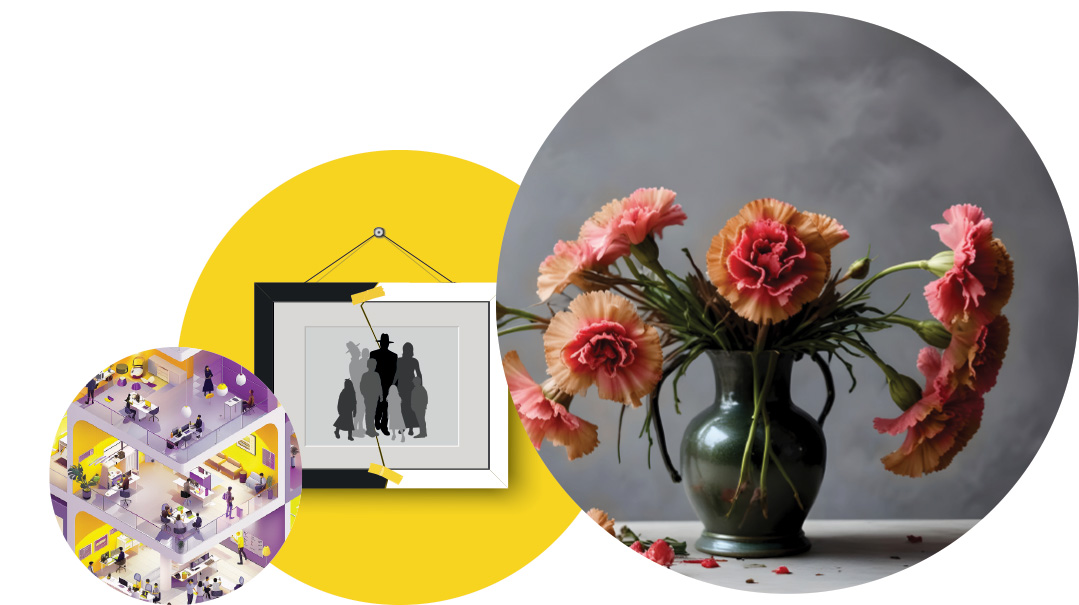Family First Inbox: Issue 869

“Young couples who host ‘couple meals’ where friends arrive with truckloads of alcohol, wake up”

More than Symbolic [Inbox / Issue 868]
I respectfully disagree with the Inbox letter, “Look Beyond Symbolic Acts,” which itself was a panel discussing how to conduct oneself during this difficult time. It is very nice to suggest that if a girl wants to go out for coffee, her mother should “encourage her to take advantage of the gathering of friends to say a perek of Tehillim together” or “have extra kavanah on the brachah.” And I certainly endorse her suggestion to take on something in our avodas Hashem, something that another letter writer so correctly suggested in her letter.
But I must take issue with the argument that we should not inflict “pain on ourselves in the ‘merit’ of our brothers and sisters.” This contradicts a gemara as well as the teachings of our baalei mussar.
The Gemara (Taanis 11a) teaches, “B’zman shehatzibbur sharui b’tzaar, al yomar adam, ‘Eilech l’veisi v’ochal v’eshteh, v’shalom alayich nafshi.’… Ela, yetza’er adam im hatzibbur — At a time when the community is steeped in distress, a person should not say, ‘I will go to my house and eat and drink, and peace be upon you, my soul.’… Rather, a person should suffer along with the community.”
The Gemara cites the example of Moshe Rabbeinu, who stood on the mountaintop overlooking Bnei Yisrael’s battle with Amalek, holding up his hands to direct their hearts in prayer. When his hands grew heavy, Aharon and Chur stood on each side supporting them, and a rock was placed there for him to sit on. A rock? asks the Gemara — was there no cushion for him to sit on, as befitting such a leader? But Moshe Rabbeinu said that since Yisrael was steeped in distress, he would be with them in their distress.
Rav Yerucham Levovitz points out that this teaches how to feel another person’s suffering. Not only should we mentally empathize with their pain, but we should do some action in order to feel a certain discomfort ourselves.
Rav Chaim Shmuelevitz points out that even if Moshe Rabbeinu had been sitting on a pillow, he would certainly still have been mishtatef b’tzaar with Klal Yisrael. But he did a tangible act, which became a lesson for all generations.
Since Simchas Torah there have been numerous speeches and letters about how to participate in the tzaar of our brethren. They all call for action on our part, curtailing our pleasures in whatever way is practical for us. A prominent rav commented recently that in truth, all the pizza shops and restaurants should be closed during this time. It is not a time to indulge!
There are countless stories of people, both leaders and “normal” people, who refrained from certain pleasures when Klal Yisrael was in tzaar: Rebbetzin Chana Perel Kotler (Rav Aharon’s Rebbetzin) couldn’t take her usual sugar cube because so many Yidden had suffered in the War; gedolim such as the Brisker Rav and the Chofetz Chaim couldn’t sleep in a bed during a time of upheaval; and C.S., who wrote in her letter that her family has reduced the sweetener in their coffee and takes cooler-than-usual showers, among other things.
Far from being wrong for “depriving” themselves, this not only follows the directive of our gedolim but can serve as a hisorerus in Shamayim for HaKadosh Baruch Hu to have rachmanus on His people and put an end to our suffering — our minor deprivations, and the far greater suffering for our brethren on the front lines and those who have suffered searing loss.
Gitty Diamond
There Is Hope and Help [Too Many Pour Decisions / Issue 868]
As an avid Mishpacha reader, I am pleased to see an article addressing the drinking problem in our community. I have no suggestions for dealing with this problem on a community-wide level. All I have is my own experience, which I would like to share.
Like “Esti” in the article, I was a young mother of three small children living in Yerushalayim. I, too, was naive about alcohol. I watched in pain and confusion as my husband, whom I love, transformed from a kind, wonderful husband to someone I barely recognized. He was completely taken over by the disease of alcoholism.
Shabbos and Yom Tov were a nightmare; the anger and chaos were unbearable. I was scared and felt so completely alone. Some of the suggestions in the article — such as spilling out leftover Shabbos wine, limiting drinks, and confronting my husband — only seemed to make the problem worse. I went to our rav, a few other big rabbanim, and even top therapists, and even that did not bring about the change I wanted.
The only thing that has worked for me is Al-Anon. I’m happy to see it was mentioned briefly in the article, but I do not think it got the spotlight it deserves. Al-Anon is a 12-step program developed to help those who are suffering from a loved one’s drinking. When I went to an Al-Anon meeting, it was the first time I didn’t feel so alone.
The beauty of Al-Anon is that we don’t give advice: We share our experiences. This program has given me my life back, given my children back a mother, and taught me how best to support my husband so he can get the help he needs.
I can’t promise your loved one will stop drinking, but in this program there is hope. What I can promise you is that you can be happy, and you can be the one to bring change to your family. I found in this program a safe place, completely anonymous, where I learn the tools that actually help my husband, and, more important, help me be closer to Hashem.
We recently started a new group in Yerushalayim, and I strongly encourage anyone who needs this to reach out for support and information. You can send me an email that will stay completely anonymous at hopenhealing18@gmail.com
Anonymous
Wake Up: It’s an Alcohol Epidemic [Too Many Pour Decisions / Issue 868]
I am thankful that you let the cat out of the bag about the horrible drinking epidemic that we face today. Only a few years ago, I was a young, idealistic kollel wife thrilled that my husband had been offered a position as a rebbi in an American yeshivah here in Israel. I was proud of him and excited to partner with him as he began his career in chinuch.
I will forever remember the first Shabbos we spent in the yeshivah. Holding my little ones, I entered the dining room, unsure what to expect. The reality that hit me was a horrible awakening.
An alcohol fest. Each boy had at least one bottle of his own, some more. I looked at the rosh yeshivah, his rebbetzin. Were they comfortable with this? How could this be? They didn’t seem to notice. Throughout the seudah, boys kept coming over to my husband trying to get him to drink. “Come on, Rebs, make a l'chayim.” I was proud of him for turning it down, but I know it was excruciatingly hard. Everyone wants to be a “chiller rebbi” and fit in with the boys; when everyone is tipsy, it’s hard to be the odd one out.
Since that appalling introduction, I have seen the deteriorating situation. It’s out of control. When we have boys over for Shabbos, they arrive, each with his own bottle (some with full bottles of hard alcohol). These are not gifts for hosting them; these are their personal stash, which they drink till the last drop. Often, before they leave to Minchah on Erev Shabbos, they are “pre-gaming,” and many arrive already drunk.
When the yeshivah goes on trips, I’ve learned that alcohol is a necessity. As the article noted, no one knows how to have a good time, to relax, or just to enjoy each other’s company; there is no ruach without being inebriated.
I am so pained by the situation, and I pray that it is not too late to fix. It seems like it’s not merely a trend, it’s a bitter reality. Parents must be more vigilant: If you see enormous weekly bills from PYUP or other wine stores, why aren’t you saying anything? Yeshivos that allow this are accomplices to the dysfunction, and staff members who imbibe with their students or flaunt their connoisseur taste are ruining futures.
Wives of rebbeim, don’t be afraid to take a stance, not only to your husbands, but on what you allow or accept in your house. Tell your guests they may not bring their own drinks. Young couples who host “couple meals” where friends arrive with truckloads of alcohol, wake up. You’re killing yourselves, your marriage, and your children’s chance at a stable, functional life.
Please forgive my bitter tone. I am deeply pained and very worried about my children’s future, my husband’s future in chinuch, and the future of our sacred bochurim.
It’s time to wake up from our own blissful stupor. We need help.
A.N.
Nowhere to Go [While We Still Can / Issue 868]
I am responding to the article written by Yael Zoldan, “While We Still Can,” where she expressed how the pre-Holocaust generation couldn’t imagine their friends turning on them and therefore didn’t take action to leave the country. We don’t live sheltered lives; even our children have their antennae up, knowing the reality just from living in an unfiltered generation.
I must say that many of us have thought along these lines; I myself turned to my husband, suggesting we think of relocating and, as chilling as it is, his answer is true, “There is nowhere to go.” We are unfortunately living in a very small world where there is no safe haven to hide or run. Each and every community was hit by the terror in its own form. The only place to turn to is Hashem and beg and plead to redeem us from galus.
RT
You Play a Role, Too [Crack by Crack / Issue 867]
“Crack by Crack” paints a vivid, painful portrait of what it’s like to get sucked into a codependent relationship. The writer has my complete respect for leaving the relationship when she did, getting the appropriate help, and for being willing to trust again. I’m not addressing my comments to her, but rather to other readers who might benefit.
There are people who feel a need to be saved. As compassionate Jews, of course we want to help them, and we do our best. But when the need to help is aroused by fear, guilt, or overwhelming obligation; when it becomes the inadvertent focus of your life and you’re unavailable for other activities and relationships; when you perpetually feel emotionally drained; when you are asked to keep important, dangerous secrets; when you’re carrying or taking responsibility for the other person’s emotions or situation; when you have a gut feeling you’re not capable of handling the situation — these are all signs that you’re in a codependent relationship.
When this happens, it’s so easy to blame the other person. However, it’s important to understand that without your participation, the unhealthy relationship can’t develop or continue. You’re the one who has to set appropriate boundaries for yourself, even when someone else skillfully manipulates you or tries to draw you in.
Chesed isn’t always easy to do, and we often have to stretch ourselves to be there for others. But chesed isn’t meant to be painful and damaging. It’s not meant to break us or make us feel as if we’re drowning and don’t know where to find the next breath of air. This is an important message for ourselves and our children.
Shoshana Schwartz
Addiction & Codependency Specialist
EFT Advanced Practitioner
Equine Assisted Therapist
Tables Turned [Family Reflections / Issue 867]
Another masterpiece by Sarah Chana Radcliffe. “In loving our children, we’ve gone overboard and allowed disrespect.” Finally, an article for children to read about how to increase their respect for their parents, show gratitude, and honor their parents. I’d like to see more articles on this topic so we can sensitize and teach children how to respect and honor their parents. Too many articles are written on how we as parents need to walk on eggshells and be sensitive to our children, teens, young couples, and couples with many children who come for Yom Tov with demands and expect to be wined and dined. It would be nice for children to read an article teaching them that parents are not their friends and how they should behave and help when coming to a parent’s home for Yom Tov. Sarah Chana offers a way a daughter can convey hurt feelings or requests by asking, not telling, informing, or demanding. Our children can learn a lot if presented with reading material that guides them and teaches them to communicate and address issues and feelings respectfully. Mishpacha is the right venue for articles addressing this important topic.
Yes, as Sarah Chana writes: “In our efforts to behave more appropriately toward our children we have often neglected our responsibility to ensure that they behave appropriately toward us as well.” Let’s guide our children back to treating parents with the utmost respect and teach them what it means to revere their parents and that by honoring their parents they are honoring Hashem. May we all have nachas from our children!
Anonymous
An Answer to the Terrorists [Inbox / Issue 867]
I disagree with Debbie from Israel who took Family First to task for “disconnecting” from the war. Mishpacha magazine spends a big chunk of each issue on the war. And that’s how it should be. It’s a news magazine.
However, Family First is different. Even so, even in the issue Debbie complained about, there were three pieces connected to the war, labeled “War Diaries.” And there have been a few each week since. Especially since I mostly read the magazine on Shabbos, I’m perfectly happy to take a respite from war content and read some normal stuff, too.
When my son was called up on Motzaei Simchas Torah, he asked his wife and the rest of us to please continue with our normal lives. He then posted on our family’s WhatsApp group a Rambam that states that it is imperative that a soldier focus on the fighting; he cannot be thinking and worrying about his family. Over and over, you hear soldiers telling their wives and mothers to continue with regular life, to do things that make them happy.
I took that as my mission, to make sure to be upbeat, especially when talking to my son. So, no, I don’t agree that, “The situation… should occupy every aspect of our daily living.” As Miriam Milstein wrote in her editor’s letter, we go to doctors’ appointments and do whatever else we normally do.
Because I live in Yerushalayim, in some ways my everyday war experience is not much different from that of someone living in chutz l’Aretz. We have had a few rockets sent in our direction, but baruch Hashem very few. I’ve added more Tehillim to my day, like I assume most people have. And I can hear the drone of the airplanes far away in the south or right above my head, so I will often murmur, “Hashem, please keep them safe. Please keep all the chayalim safe. Please keep all Your children safe, wherever they are.”
Obviously, there are differences in the overall experience I have. I’ve gone to a shivah of someone I didn’t know, and to the levayah of an American olah chadashah, Rose Lubin, a policewoman who saved many people on Simchas Torah but was killed by a terrorist in the Old City. Thousands went, even though we didn’t know her, because the word had gone out that it would comfort her family to see the appreciation for her sacrifice.
Ask anyone how they are, and chances are they will answer, “Baruch Hashem. [Pause] Like everyone.” The atmosphere is heavy. And I do feel guilty that I haven’t yet joined any of the amazing war-effort initiatives like Iron Sisters (Issue 866). However, my going about my normal life is an answer to the terrorists as well. This has been my answer to them since I made aliyah over 40 years ago. When buses were being blown up in the Second Intifada, I still went on them. I even let my children go on them, with instructions. And I also let them go to their Ezra youth group meetings, while I organized that there should be a guard when the children were there. That was my hishtadlus.
Srif Cohen
Yerushalayim
Support for IDF Moms [Inbox / Issue 867]
A letter to the mother of a lone soldier who wrote a letter to the editor:
Dear Mrs. Rothstein,
I feel you and I get it, while so much of the focus is on Eretz Yisrael, there are mothers like us in America who are suffering and have anxiety, fear, and pain as well. I would like to tell Mrs. Rothstein and all other mothers that we’ve created a WhatsApp support group for moms of IDF soldiers. It’s open to anyone in the US. If you or someone you know can benefit from this kind of group, we can be contacted via Family First.
A Fellow Mom
A Lone Soldier, But Not Alone [Inbox / Issue 867]
To Liz Rothstein, a very special lone soldier mom:
Being the wife and mother of two soldiers (who have been home once since Simchas Torah) here in Israel, I cannot imagine what it must be like to not only not see your son, but also to be physically so far away. May Hashem give you strength to shine through this nisayon, and may He bring your son home to you very soon shalem in guf and neshamah.
I must tell you... your son has no reason to go to an empty apartment! He would be heartily and joyfully welcomed by so many, whether here in RBS, Jerusalem, if that’s easier for him, or really anywhere in the country he chooses to go when he has a few hours off. There are hundreds of families who are being graciously hosted all over the country, and “lone soldier” is really a terrible misnomer and almost an affront to all of us here in Israel... of course they are not alone!
It would be my honor and pleasure to help anyone whose son would like to be hosted by a warm and caring family (hot meals, comfortable bed, shower, and clean laundry included!).
I can be contacted through Family First.
Besoros tovos and chodesh tov,
Michal Reit
Ramat Beit Shemesh
Bye Bye Braiding [Family Table / Issue 866]
Thank you for the enjoyable and informative challah issue. I’m now eager to utilize dough improver.
I’d like to mention that challah as we know it today has very little similarities to the lechem of the Beis Hamikdash. In those times, they were simple, unbraided loaves.
Today’s challah, which is from an enriched dough, originally took Europe by storm in the 15th century. Enriched dough was found to last longer, and it was braided so it could hold its shape (and look pretty, I’m sure). Jews, not one to miss a trend, eagerly took on this method for our Shabbos bread, which eventually was referred to by all as “challah.”
However, I feel like the braiding aspect can make bread baking daunting for some. My own mother bought her weekly challah until she was 40. Our neighbor, a well-known educator, discovered this and ordered Ma over to her house and taught her how to braid challah. Ma made her own challah ever since, carefully chanting the order of the strands as she braided.
The inyan of hafrashas challah isn’t in the braiding, but the brachah over my dough. While I can braid my dough, it’s sometimes difficult with a toddler pulling on my skirt, so I just form loaves and bake it like so.
Perhaps the mitzvah would be more approachable to women if they realize that braiding is optional.
Lea Pavel
(Originally featured in Family First, Issue 869)
Oops! We could not locate your form.







